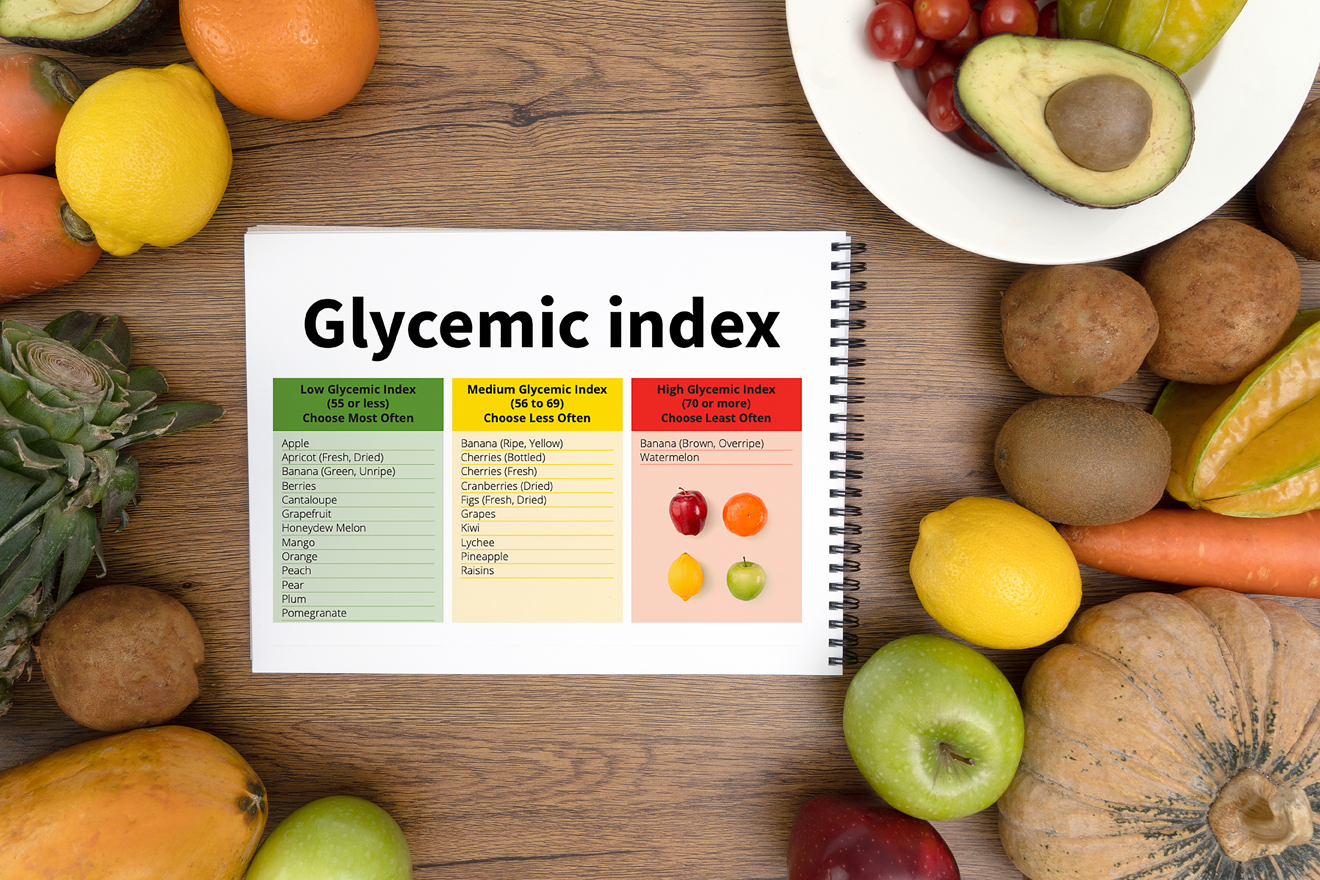The Mango Glycemic Index: Unveiling the Sweet Truth
When it comes to managing blood sugar levels, understanding the glycemic index (GI) is crucial. In this article, we delve into the glycemic index of mangoes, a popular and nutritious tropical fruit. By exploring the sweet truth about mangoes and their impact on blood sugar, we aim to provide valuable insights for health-conscious individuals.

Understanding Glycemic Index
The glycemic index measures the effect of carbohydrates on blood sugar levels. It is particularly important for individuals seeking stable energy, weight management, and diabetes control. Foods are categorized on a GI scale as low, medium, or high GI. Factors such as food processing, ripeness, and cooking methods can also influence glycemic response.
Mangoes: A Tropical Delight
Mangoes are beloved tropical fruits known for their delicious taste and nutritional value. They are packed with essential vitamins, minerals, and fiber, making them a nutritious addition to any diet. There are various types of mangoes, each with its unique characteristics and flavors.
Unveiling the Mango Glycemic Index
Research has been conducted to determine the glycemic index of mangoes, shedding light on their impact on blood sugar levels. It is important to note that there may be some variability in the GI values reported in different studies. On average, mangoes have a moderate glycemic index value, falling in the medium GI category.
Comparing mangoes to other fruits and carbohydrate-rich foods, mangoes generally have a lower GI than some starchy foods like potatoes and rice. However, they have a slightly higher GI compared to berries and certain citrus fruits.
It is worth mentioning that consuming mangoes as part of a balanced meal, rather than in isolation, can help mitigate any potential blood sugar spikes. The presence of protein, fat, and fiber in a meal can slow down the digestion and absorption of carbohydrates, leading to a more gradual rise in blood sugar levels.
Factors Influencing Mango GI
The glycemic index of mangoes can be influenced by various factors, including the ripeness of the fruit. Ripe mangoes tend to have a higher GI compared to unripe ones. This is because the natural sugars in mangoes become more easily accessible as the fruit ripens.
The processing methods used for mangoes can also affect their glycemic index. Fresh mangoes typically have a lower GI compared to frozen or canned mangoes, as processing methods can alter the structure of the fruit and affect its glycemic response.
The variety of mango and cultivation practices may also play a role in the glycemic index. Different mango varieties may have varying levels of natural sugars and fiber content, which can impact their GI. Additionally, the conditions in which mangoes are grown, such as soil quality and climate, can influence their nutritional composition and glycemic response.
Lastly, portion size and consumption of other foods can affect the overall glycemic response. Eating a smaller portion of mangoes or combining them with protein, healthy fats, and fiber-rich foods can help moderate the impact on blood sugar levels.
Health Benefits of Mangoes
In addition to their glycemic index, mangoes offer numerous health benefits. They are a rich source of vitamins, such as vitamin C and vitamin A, which are essential for immune function and eye health. Mangoes also provide minerals like potassium and magnesium, which are important for heart health and muscle function.
Mangoes contain dietary fiber, which aids in digestion and promotes a healthy gut. They are also packed with antioxidants, such as beta-carotene and flavonoids, which help protect the body against oxidative stress and inflammation.
Incorporating Mangoes into a Balanced Diet
To enjoy the health benefits of mangoes while managing blood sugar levels, it is important to incorporate them into a balanced diet. Portion control is key, as mangoes do contain naturally occurring sugars. It is recommended to consume a moderate serving size of mangoes, typically around 1 cup or 150 grams. This allows you to enjoy the flavor and nutritional benefits without overloading with carbohydrates.
One way to incorporate mangoes into a balanced diet is to include them in salads. Add sliced mangoes to a bed of leafy greens, along with some protein like grilled chicken or tofu, and a source of healthy fat like avocado or nuts. This combination of nutrients helps balance the glycemic response and provides a satisfying and nutritious meal.
Mangoes can also be enjoyed in smoothies. Blend mango chunks, a source of protein like Greek yogurt or plant-based protein powder, and a handful of leafy greens for added fiber. You can also add some healthy fats like chia seeds or nut butter. This creates a well-rounded and filling smoothie that can be enjoyed as a snack or a meal replacement.
As with any dietary considerations, it is important to consult with a healthcare professional or registered dietitian, especially if you have diabetes or other specific dietary restrictions. They can provide personalized guidance on incorporating mangoes into your diet while managing blood sugar levels effectively.
FAQs
Is the glycemic index the same for all mango varieties?
The glycemic index may vary slightly among different mango varieties, but the overall impact on blood sugar levels is similar.
Can mangoes be included in a low-carb diet?
Mangoes are not typically recommended for a strict low-carb diet due to their natural sugar content. However, they can be enjoyed in moderation as part of a balanced diet.
How does the ripeness of a mango affect its glycemic index?
Ripe mangoes tend to have a higher glycemic index compared to unripe ones, as the natural sugars become more accessible during ripening.
Are frozen or canned mangoes higher in GI than fresh mangoes?
Fresh mangoes generally have a lower glycemic index compared to frozen or canned mangoes, as processing methods can impact the fruit’s glycemic response.
Can mangoes cause a sudden spike in blood sugar levels?
While mangoes do contain natural sugars, consuming them as part of a balanced meal can help prevent sudden spikes in blood sugar levels.
Are mangoes suitable for individuals with diabetes?
Individuals with diabetes can enjoy mangoes in moderation as part of a well-balanced meal plan. It is important to monitor portion sizes and consider the overall carbohydrate content of the meal.
Can mangoes be consumed by people trying to lose weight?
Mangoes can be included in a weight loss diet when consumed in moderation and as part of a calorie-controlled eating plan.
Are there any potential allergic reactions to mangoes?
Some individuals may have an allergic reaction to mangoes, particularly if they are allergic to other fruits in the same botanical family, such as poison ivy or cashews. It is important to be aware of any potential allergies and seek medical advice if necessary.
How can mangoes be stored to maintain their nutritional value?
Mangoes should be stored at room temperature until they are ripe. Once ripe, they can be stored in the refrigerator for a few days to maintain their freshness and nutritional value.
Can mango consumption lead to digestive issues?
Some individuals may experience digestive issues, such as bloating or diarrhea if they consume excessive amounts of mangoes. It is important to consume mangoes in moderation and listen to your body’s response.
Conclusion:
Mangoes, with their moderate glycemic index and numerous health benefits, can be enjoyed as part of a balanced diet. Understanding the factors that influence the glycemic index of mangoes, such as ripeness and processing methods, can help individuals make informed choices about their consumption. By incorporating mangoes into meals and snacks alongside other nutrient-rich foods, individuals can savor the sweet taste of mangoes while managing blood sugar levels effectively.




